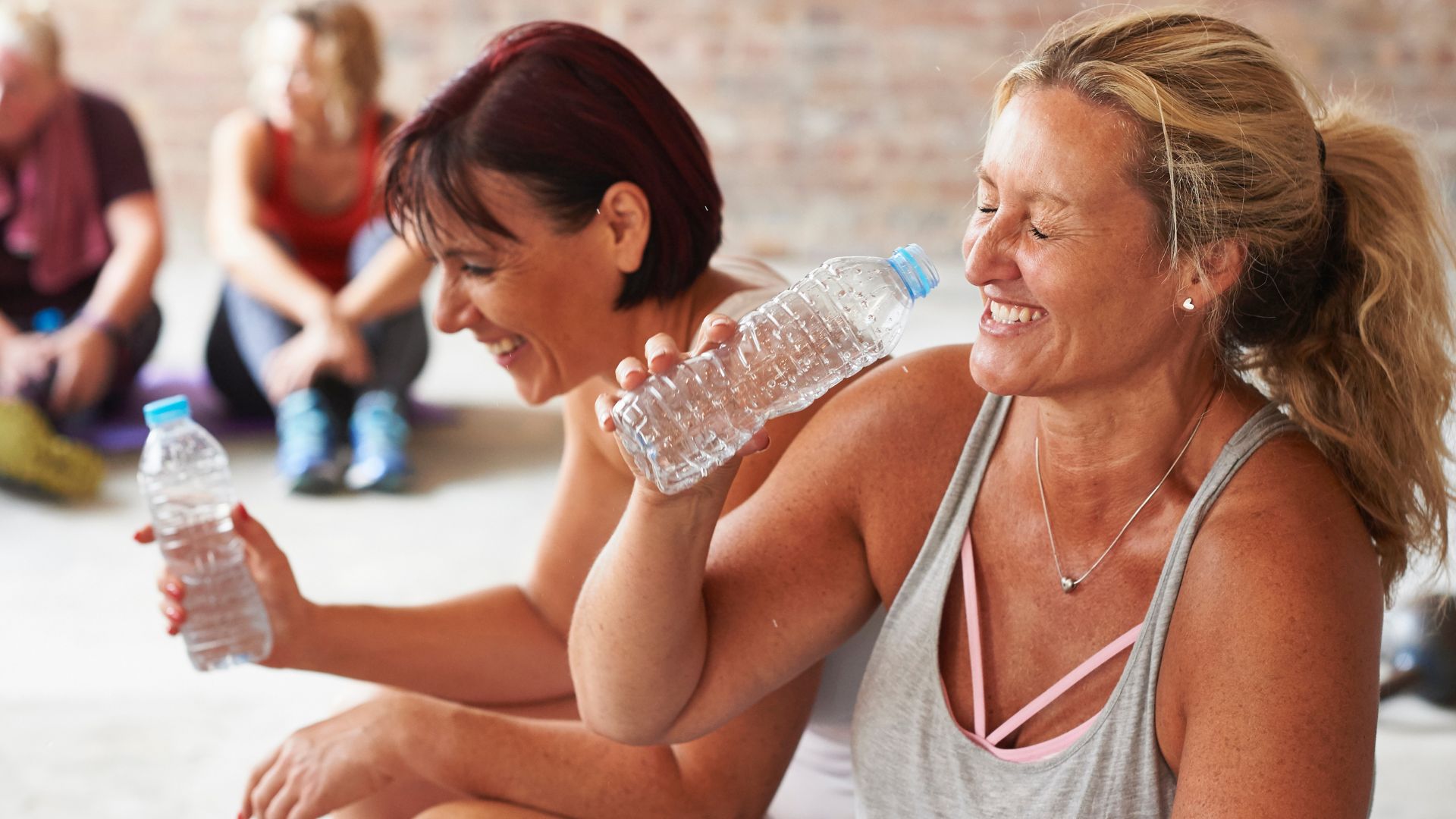Are you eating enough protein - or too much? Doctors reveal how much protein women really need in menopause
Protein becomes even more important in perimenopause, with benefits for muscle and bone density, sleep, metabolism and more


How much do I need? It's a question many of us are asking as the noise around this particular nutrient seems to be louder than ever.
Protein is essential in the body for everything from supporting the immune system to appetite regulation, which is why it's a key nutrient in our diets and protein powders for women have become more popular.
In the lead up to menopause, it becomes perhaps even more important, as the body starts to lose oestrogen's protective benefits on bone density and muscles. Without enough protein (and exercise like strength training), diseases like sarcopenia (muscle loss) become more likely.
However, with the added focus on high-protein foods and the benefits of protein for goals like weight loss in recent years, many of us may be eating more than we actually need to - while others may still not be getting enough.
So, how much protein do you really need to reap the benefits in perimenopause? Woman&home speaks to two women's nutrition and health specialists to reveal whether you're right on track or may be set to experience the signs of eating too much protein.
How much protein do I need?
The amount of protein you need depends on your weight. "The recommended protein intake for women over 45 is approximately 1 to 1.5g of protein per kilogram of body weight per day, which is higher than the general recommendation for younger adults," says Dr Nadira Awal, a Doctify-rated GP who specialises in women's health and menopause.
For an average woman who weighs 71kg, the recommended lowest protein intake is 71g of protein per day and the highest is 106g. If you do regular strength training or other exercise, you'll likely need more protein than someone who doesn't. You can work out your personal recommendation using fellow menopause specialist Dr Mary Claire Haver's perimenopause protein calculator.
Sign up for the woman&home newsletter
Sign up to our free daily email for the latest royal and entertainment news, interesting opinion, expert advice on styling and beauty trends, and no-nonsense guides to the health and wellness questions you want answered.
Even just increasing your protein intake very slightly every day can make a difference, according to a new study published in the Journal of Nutrition, Health, and Aging. Researchers found that women over 50 who supplemented with an additional 15g of protein a day on top of their regular diet were better able to maintain lean body mass (i.e. muscle) and were less likely to gain fat.
However, Dr Awal says, "it's always best to consult with a healthcare professional or registered dietician to determine the optimal protein intake based on your personal needs".
She also recommends spreading your protein intake out throughout the day, rather than trying to pack it into one meal or overloading on protein-rich snacks. "This helps maximise muscle protein synthesis and overall protein utilisation," she says.

Protein sources include foods like fish, eggs, and nuts, along with supplements like protein powders.
Why do I need more protein over 45?
- To maintain muscle: Many women begin to experience perimenopause symptoms from 45, which occur when there's a drop in levels of hormones like oestrogen. "Oestrogen decline increases muscle breakdown, which can lead to muscle loss and a slower metabolism," says Sandra Cohen, a functional nutritionist also rated by Doctify. The health benefits of protein powder come in here - eating enough protein can help prevent this as it contains amino acids (muscle's building blocks).
- To help manage hormone levels: A low protein intake can lead to imbalanced hormones, mood swings, and poor metabolism, says Cohen as "amino acids from protein act as precursors for essential hormones". For example, tyrosine - a an amino acid in protein-rich foods like chicken, fish, and beans - helps create dopamine, a hormone that helps support focus, motivation, and helps prevent mood swings.
- To improve sleep: If menopause symptoms like poor sleep are causing issues, protein could help as the nutrient "supports melatonin production a deeper sleep", says Cohen. Melatonin is an essential hormone that tells our body and brain it's time for sleep.
- To reduce cravings and help with blood sugar regulation: "Perimenopausal women are at increased risk of insulin resistance, which leads to fat storage and energy crashes," says Cohen. "Protein and fibre-rich meals help stabilize blood sugar, reducing sugar cravings and preventing weight gain."
How to work out if you'e eating enough protein
If you want to be specific about it, you could download one of the best fitness apps - like MyFitnessPal or Lifesum - and track your protein intake here. You'll need to know the protein in every food and drink you consume though, so it can be quite arduous. But, doing it even for just a week will give you an idea of how much you need to eat and what you feel like.
You'll certainly know if you're eating too much protein by the way you feel, with side effects of protein overloading including bloating, dehydration, nausea, fatigue, and headaches.
But along with these side effects, it's very important to avoid eating too much protein over an extended period of time as "it can lead to health complications, such as cardiovascular problems, especially if you're eating a diet rich in red meat", says Dr Awal. "Excess protein also puts a strain on the kidneys and increases the risk of kidney stones".
This is why "it's crucial to maintain a balanced diet that includes adequate fibre, vitamins and minerals alongside increased protein consumption," she adds.

Grace Walsh is woman&home's Health Channel Editor, working across the areas of fitness, nutrition, sleep, mental health, relationships, and sex. She is also a qualified fitness instructor. In 2025, she will be taking on her third marathon in Brighton, completing her first ultra marathon, and qualifying as a certified personal trainer and nutrition coach.
A digital journalist with over seven years experience as a writer and editor for UK publications, Grace has covered (almost) everything in the world of health and wellbeing with bylines in Cosmopolitan, Red, The i Paper, GoodtoKnow, and more.
-
 I spent a weekend in the French Riviera with just hand luggage - why the Antler Essentials collection is a space and money-saver
I spent a weekend in the French Riviera with just hand luggage - why the Antler Essentials collection is a space and money-saverThe new Antler Essentials Tote Bag and Hoodie deliver off-duty chic with well-considered designs and lots of secure extras. Get ready for a travel upgrade.
By Laura Honey
-
 The celebrity looks that prove faux fur will always be in style
The celebrity looks that prove faux fur will always be in styleFrom opulent coats to faux fur hats, this is one trend that'll always make a luxe statement
By Jack Slater